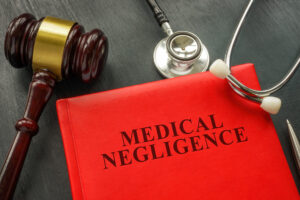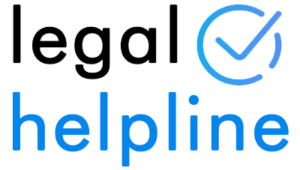To help illustrate when a medical professional fails to provide care and treatment to the expected standard, we’ve put together a guide that looks at examples of medical negligence. It explores real-world scenarios where negligence has occurred. We follow this up with an explanation of the eligibility criteria for medical negligence claims. This can help you understand whether you have good grounds to seek clinical negligence compensation.
If you do, you might like to know how much compensation you could be awarded. We explain what factors affect medical negligence payouts. We also look at how gathering compelling evidence could help support your compensation claim.
We bring this guide to a conclusion with our penultimate section looking at how one of the specialist medical negligence solicitors from our panel could help with valid claims. Our panel of solicitors have years of experience in medical negligence claims and may be able to assist you with your own claims process. Our panel of expert solicitors have years of experience dealing with cases involving medical negligence.
If you have any questions at any time while reading our guide, our friendly advisors are on hand 24/7 to help you. They can also provide a free consultation about whether you have good grounds to seek medical negligence compensation without any further obligation to use our services. To contact one of our helpful advisors, you can:
- Call us on 0333 000 0729.
- Fill out our contact us form, and one of our friendly advisors will be in touch.
- Use our built in livechat feature.

Jump To A Section
- What Is Medical Negligence?
- What Are Some Examples Of Medical Negligence?
- Can I Claim For Medical Negligence?
- How Much Compensation For Medical Negligence Could I Receive?
- How To Prove Medical Negligence
- Getting Free Medical Negligence Advice From LegalHelpline
- More Information
What Is Medical Negligence?
Medical negligence happens when a healthcare professional fails to provide you with the level of care expected of them. Providing care and treatment to the expected standard is known as their duty of care. It is owed to you automatically when you seek medical attention. Furthermore, medical negligence can happen in any institution providing healthcare, including those run by the NHS or private practice.
Different medical professionals must follow different codes of ethics, but their correct standards. For example, the Nursing and Midwifery Council have a general aim to do all they can to protect the public and set the code of conduct for nurses and midwives. Other bodies that offer guidance to medical professionals include the General Medical Council, which is responsible for governing regulations for doctors.
What this means is that doctors, nurses, or any healthcare professionals are both legally and professionally expected to provide their patients with care that would avoid any unreasonable harm from occurring, and if you receive a substandard level of care which results in unavoidable and unnecessary harm happening to you, you may have eligibility to claim for medical negligence.
Examples of medical negligence could be a misdiagnosis or delayed treatment. We explore the most common occurrences of medical negligence below.
What Are Some Examples Of Medical Negligence?
Medical negligence can occur in a number of different situations and can have lifelong impacts on the patient. The list of examples of medical negligence found below is not exhaustive, and if you are unsure whether you have experienced medical negligence, contact us today to see how we could help.
Misdiagnosis Or Delayed Diagnosis
A misdiagnosis happens when a medical condition is wrongly diagnosed or missed. This can pose a range of different issues, as it can mean conditions go undetected and untreated. An example of this in practice could be if a doctor diagnoses a benign tumor when it is a malignant tumor, and you do not receive the correct treatment as quickly as you should, causing the cancerous tumour to worsen.
Misdiagnosis poses the risk of leaving health conditions untreated, but it can also mean you may receive treatment that you do not require.
Surgical Errors
Surgical errors are a type of medical negligence which can also occur. For example, if you undergo an amputation surgery on your left leg, but the surgeon should have operated on your right leg, you could have valid grounds for a claim of medical negligence.
This type of surgical error would mean having to undergo the correct operation, as well as needing procedures to correct the avoidable harm caused (whenever possible).
Failed Or Delayed Treatments
If a healthcare professional fails or delays in giving you necessary treatments, this can lead to further health deterioration. Failed or delayed treatments, as an example of medical negligence, can cause unnecessary harm and potentially worsen your health condition. Examples of failed or delayed treatments could be:
- If your diagnosis was missed, or you were diagnosed later than you should have been
- If your doctor failed to refer you to specialists
- Test results are lost
- Appropriate treatment is not given in a reasonable timeframe
If this delay or failure in receiving treatment resulted in unnecessary or avoidable harm, then you may be entitled to start a claim for medical negligence.
If you have any questions about delayed or missed treatments, contact us today to see how we could help.
Pregnancy And Birth Injuries
During pregnancy, it is highly important that women receive the appropriate level of care from medical professionals. This can include ensuring tests for any birth defects are undertaken quickly to ensure the safety of the unborn child. For example, a mother should be offered scans at appropriate stages of pregnancy. Additionally, the mum should be monitored for conditions she could be at risk of, such as gestational diabetes and given appropriate treatment if required.
Furthermore, there are risks during labour itself. For example, a doctor does not properly monitor oxygen levels during labour, which can have detrimental impacts on the baby, such as posing risks of stillbirth.
Some examples of complications in pregnancy are:
- Ectopic pregnancy
- Pre-eclampsia
- Uterine rupture
- Gestational diabetes
- Wrongful pregnancy
Birth injuries that could occur to your baby include:
- Cerebral palsy.
- Brain damage.
- Nerve damage, such as a brachial plexus injury.
- Broken bones.
If you have suffered any pregnancy complications and believe you received a substandard level of care during your pregnancy, please contact us today to see how our specialist panel of solicitors can help you take the next steps.
Incorrect Medication Or Anaesthesia
There are a range of different instances where you may be given the wrong medication or anaesthesia, for example:
- If your medication has been mixed up with that of another patient’s
- If the pharmacy dispenser has given the wrong dosage of a medication
- If you underwent a surgical procedure and the anaesthetist didn’t give you enough anaesthesia or gave you too much
Being given the wrong medication can worsen your pre-existing health condition, but it can also pose a range of different issues. For example, a pharmacist may give you eyedrops for an ear infection, which would mean your ear infection is left untreated, and your ear has been injured due to using inappropriate drops in it. Pharmacists also have the same duty of care owed as a doctor or any other medical professional.
Hospital Infections
If you are admitted to the hospital, you can be exposed to what are known as hospital infections. The most common hospital infections are:
- MRSA
- E. Coli
- Staph infections
- C. Difficile
Hospitals should uphold a level of hygiene and cleanliness to try to avoid these infections from spreading. If you catch one of these infections whilst in hospital, it can be an indicator of poor care and hygiene, which could be valid grounds for a claim of medical negligence.

Can I Claim For Medical Negligence?
In order for you to be able to claim for medical negligence, 3 factors must be proven:
- A medical professional owed you a duty of care
- They breached this duty
- The breach resulted in you suffering avoidable and unnecessary harm.
If these three factors are present, you may have valid grounds to claim medical negligence compensation.
It is also important to note here that under the Limitation Act 1980, you generally have 3 years from the date of medical negligence occurring to start a claim. Alternatively, you could have 3 years from the date of knowledge in which to start your claim. This is the date you would have reasonably been expected to know that medical negligence occurred. However, there are some exceptions for those who are unable to claim themselves, such as minors or those without the mental capacity. Please speak to an advisor to find out more.
If you’re unsure about whether you are eligible to claim for medical negligence or if your claim is still within the time limit, contact one of our friendly advisors. They can go through the eligibility with you and compare it to the incident that caused your avoidable suffering. Furthermore, they will check your claim against the limitation period. If you are within this time limit, they could help you get a claim started today.
How Much Compensation For Medical Negligence Could I Receive?
You may be wondering how much compensation you could be entitled to if you have experienced medical negligence. This is based on a number of factors, such as the severity of harm you have suffered. For example, if you suffer a very severe brain injury as a result of medical negligence, you could receive £344,150 to £493,000 in accordance with the Judicial College Guidelines (JCG).
Compensation serves the purpose of trying to compensate you for the pain and suffering, as well as the financial loss. It is generally awarded as two heads of claim, which we look at below.
General Damages
General damages are designed to compensate you for the level of pain and suffering you have experienced. This head of damages also considers any loss of amenity and any intangible effects you may have experienced as a result of the medical negligence. General damages are calculated by considering the guidelines offered by the JCG, and referring to similar cases that have happened. Additionally, those calculating a figure for this part of your claim may also look at your medical records. We’ve included a table below that contains a few figures from the JCG in addition to a sum in the top row (not from these guidelines) that shows you how you could be awarded for multiple harms plus your related out-of-pocket expenses.
| Harm | Severity | Description | Compensation Guidelines |
|---|---|---|---|
| Multiple + Expenses | Very Severe | The claimant has suffered multiple types of harm, including some that was very severe, plus special damages, including nursing care and lost income. | Up to £1,000,000 or more |
| Brain Damage | Very Severe | Although there may be some ability to follow basic commands, the injured party suffers severe cognitive and physical disabilities that require around the clock nursing support. | £344,150 to £493,000 |
| Paralysis | Paraplegia | In addition to considering whether paralysis will increase (or the degree of risk of such), awards also look at pain, independence, depression, age and life expectancy and the impact on the claimant's sexual function. | £267,340 to £346,890 |
| Bowels and Bladder | Double Incontinence | There is a complete loss of both natural function and control of both the bowels and bladder. | Up to £224,790 |
| Back Injury | Severe (i) | These cases are the most severe and involve damage to the spinal cord and nerve roots that result in severe pain and disability causing significant impairments to the functioning of the bladder and bowel, along with sexual function problems and incomplete paralysis. | £111,150 to £196,450 |
| Arm Amputation | Loss of One Arm (ii) | The claimant's arm has been amputated above their elbow. | £133,810 to £159,770 |
| Female Reproductive System | Infertility | This bracket includes cases of infertility without any aggravating features or sexual dysfunction. | £68,440 to £87,070 |
| Kidney | Significant | In these cases, there is a significant risk of urinary track infections in the future, or other loss of natural functioning. | Up to £78,080 |
| Spleen | Loss | This results in a continuing risk of internal infections | £25,380 to £32,090 |
| Non-Traumatic Illness To The Digestive System | Allergic Reaction (iii) | The claimant suffers significant discomfort, stomach cramps, bowel function alteration and fatigue. They make a complete recovery within a year or two. | £4,820 to £11,640 |
Special Damages
Special damages serve the purpose of compensating you for financial losses you may have incurred as a result of the medical negligence. This can include:
- Loss of earnings or future earnings
- Accommodation costs
- Travel expenses
- Adaptations to your home or vehicle
- Domestic help, including with childcare or cleaning.
- Nursing care
- Rehabilitation
The purpose of special damages is to try to put you in the same financial position you were in before the incident. You will need to provide documentation of your expenses.
If you have any questions about how compensation could be awarded for a successful medical negligence claim, or if you would like an individualised estimate, please speak to one of our friendly advisors using the contact details mentioned above.
How To Prove Medical Negligence
You must have evidence to support your claim for medical negligence. This needs to show liability for the avoidable harm you sustained.
In medical negligence, examples of evidence could include:
- Specialist medical opinions
- Photographs of the harm caused, ie, a rash or hives caused by an allergic reaction to the wrong medication
- Medical reports
- History of previous medical appointments
- Correspondence between yourself and the facility where the incident occurred
- Receipts for financial costs, such as mortgage payments
Any of these items may help to strengthen your argument in your claim. However, don’t worry if you don’t have them. Give our advisors a call or put a message in the live chat and one of them will happily discuss how to gather the correct evidence for your claim or advise on what items you could collect in your individual circumstances.
Getting Free Medical Negligence Advice From LegalHelpline
Legal Helpline can help you start a claim for medical negligence. To further discuss examples of medical negligence, our advisors are available around the clock. The advice they give is 100% free. An advisor can:
- Help ensure that you are claiming everything you are entitled to, both in terms of the physical and mental harm suffered as well as special damages.
- Answer any further questions you may have about examples of medical negligence.
- Assess your individual circumstances and advise on whether you could have a valid claim for the harm you suffered.
If it seems like you do, they could connect you to one of the solicitors from our panel.
Why Work With Our Panel Of Solicitors?
Our specialised panel of solicitors work under a type of No Win No Fee contract, known as a Conditional Fee Agreement. This could benefit you in the following ways:
- You do not have to pay for our solicitors’ fees upfront or as the claim is ongoing
- If successful, a success fee is deducted from your compensation, which is legally capped (in accordance with the Conditional Fee Agreements Order 2013)
- If unsuccessful, you would not be required to pay our solicitors’ fees
Thank you for reading our guide today. We hope it has been useful, but if you have any questions or would prefer to talk to us, you can contact us by:
- Call us on 0333 000 0729 where one of our friendly advisors will assist you.
- Fill out our contact form, and one of our advisors will call you back.
- Use our livechat option for assistance.
More Information
- Our guide on walk in centre negligence claims
- Our guide on what an Interim Payment is
- Advice on claiming for paramedic negligence.
External Helpful Resources
- How to apply for Statutory Sick Pay
- The NHS Constitution for England from the government.
- NHS advice on when to call 999




